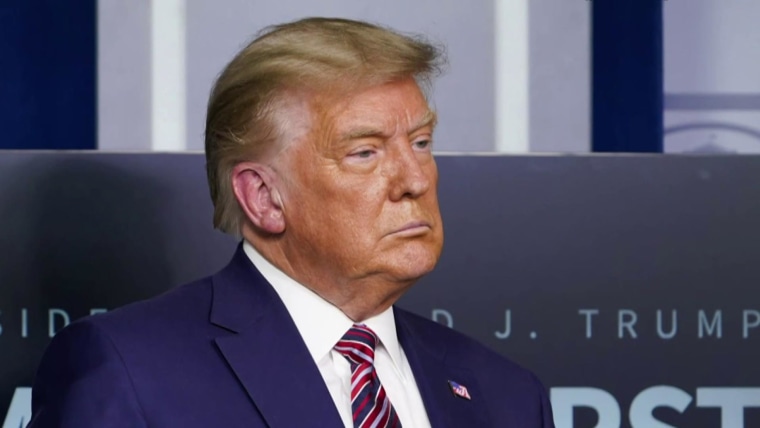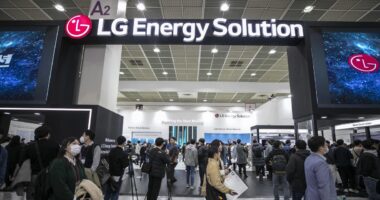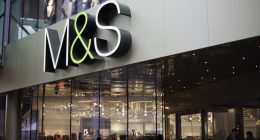It’s so easy to be cynical about Washington. Yet, amid the bickering and tumult in the headlines, something remarkable is happening. The United States is on the verge of enacting bipartisan, landmark anti-corruption reform.
It may be the first bill in the history of Congress that has the support of both Dow Chemical and Friends of the Earth.
Last week, with veto-proof majorities in both chambers, Congress passed the annual defense spending bill, known as the National Defense Authorization Act. The bill is expected to soon become law. Folded into the bill is the Corporate Transparency Act — a major bipartisan measure that, for the first time, would end the formation and use of anonymous shell companies in the United States. It’s the most significant anti-money-laundering and anti-corruption upgrade the U.S. has seen in a generation.
While many Americans assume that money laundering and financial crimes are primarily problems for small Caribbean islands or mountainous European countries, the Tax Justice Network’s Financial Secrecy Index currently ranks the United States as the second-largest financial secrecy hub in the world, ahead of Switzerland and behind only the Cayman Islands.
Right now, you can form a shell company (an entity with no real assets or operations) in any state without disclosing the identity of the true owners. In some states, you don’t need to list the name of any person associated with the business. Amazingly, in all 50 states, more information is needed to receive a library card than to form an anonymous company that can facilitate money laundering, tax evasion and corruption.
For decades, national security officials, law enforcement officers, human rights groups and anti-corruption advocates have seen the ability to form and misuse anonymous shell companies as arguably the biggest loophole in our anti-money-laundering framework. These opaque structures are routinely used to undermine international security and human rights by hiding the identity of bad actors and laundering the proceeds for a wide variety of crimes, including grand corruption, terror financing, human and drug trafficking, weapons smuggling, fraud and tax evasion.
The son of the president of Equatorial Guinea, a small oil-rich nation in West Africa where the majority of the population lacks access to clean drinking water, used a shell company formed in California to disguise his purchase of a $30 million mansion in Malibu, as described in a U.S. Senate report. Viktor Bout, who’s been nicknamed the “the Merchant of Death” and inspired the 2005 film “Lord of War,” starring Nicolas Cage, used a network of anonymous shell companies, including at least 12 incorporated in Delaware, Florida and Texas, to disguise weapons trafficking into conflict zones around the world. NBC News has documented how North Korea uses anonymous shell companies to finance their nuclear weapons program in violation of U.S. and international sanctions.
Experts at the World Bank and United Nations investigated 150 of the largest corruption cases over the past several decades and found that the vast majority of them used anonymous shell companies to launder and hide their illicit funds, with U.S. entities being the most common.
The lack of information means that as soon as investigators tracking these dirty money networks run into an anonymous shell company, the financial trail runs cold, leaving the criminal and the corruption — whether it is human traffickers in Ohio or the son of a corrupt foreign leader — free to continue using their ill-gotten money to fund their enterprises.
Fortunately, thanks in large part to the work of the Financial Accountability and Corporate Transparency (FACT) Coalition — a collection of hundreds of nongovernment organizations that back transparency — and our allies in Congress, who have spent the past decade educating and recruiting a powerful alliance of ideologically diverse constituencies to support reform, the days of abusing anonymous companies in the United States are numbered.
After more than a decade of debate and inaction in Washington, criminals, kleptocrats, tax cheats and terrorists will no longer be able to hide behind the veil of secret companies.
A decade ago, reform was stalled, as bills drew opposition from the U.S. Chamber of Commerce and states like Delaware. Things began to change in 2016, when the Panama Papers éxposé of shell companies of the rich and powerful dominated news headlines and transparency advocates recruited the powerful banking sector to endorse reform— it turns out that banks spend a lot of resources trying to prevent money launderers from opening accounts at their institutions.
Fast forward to 2018, and the Delaware secretary of state reversed its opposition. After a growing chorus of businesses endorsed reform, the U.S. Chamber of Commerce sent a letter to Congress this summer finally endorsing the bill.
The Corporate Transparency Act is also one of the few areas where the outgoing Trump administration agrees with the incoming Biden administration, and it may be the first bill in the history of Congress that has the support of both Dow Chemical and Friends of the Earth.
Now, this act will take the simple yet effective step of requiring companies to report the names of their true owners at the time of formation and update the data upon any changes in ownership. The information will be kept private in a secure directory and only made available to law enforcement for use in authorized investigations and, with customer consent, to financial institutions to help them ensure they are not opening accounts for money launderers.
Despite the bill’s simplicity, its significance is grand. After more than a decade of debate and inaction in Washington, criminals, kleptocrats, tax cheats and terrorists will no longer be able to hide behind the veil of secret companies formed in the United States.
At a time when so many are fed up with Washington, the bipartisan process that led to this moment is an example of Congress at its best — with lawmakers doggedly working across the aisle for years in good faith negotiations. It’s not only a landmark anti-corruption victory, it’s a reminder that good things sometimes still happen in Washington.
Source: | This article originally belongs to Nbcnews.com










